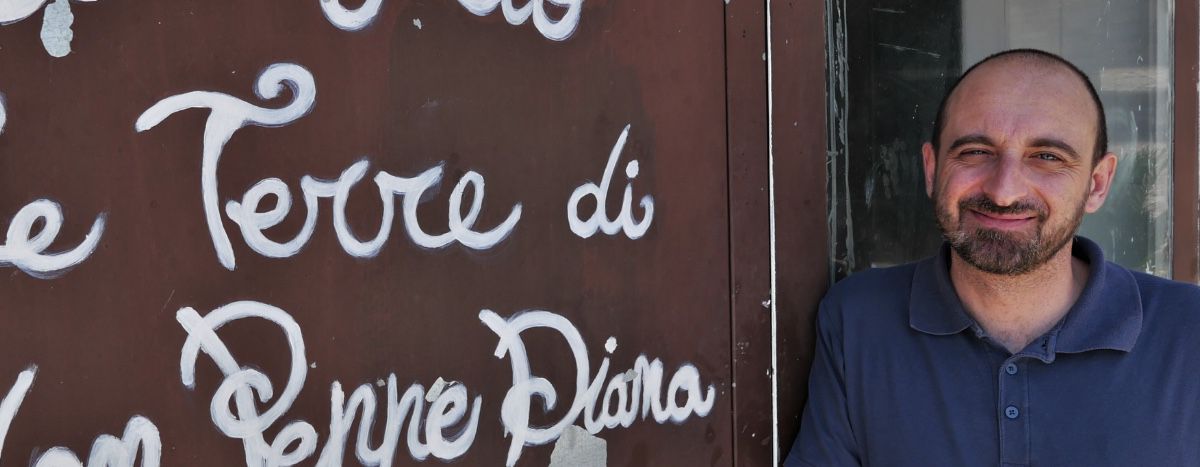
“When you manage confiscated assets, you have to prove yourself. It's a matter of credibility in the face of what we are fighting" (3/3)
Published on
Translation by:
CafébabelThis the third and last episode of “New Landlords”, the Cafébabel investigation on citizens reinvesting confiscated mafia assets. Across Italy, NGOs are now managing hundreds of reinvestments of former mafia assets. But activists, volunteers and NGOs regret a lack of support from public authorities.
It is barely 7 a.m. and the production workshop is already quite busy. One by one, little white balls plunge into the brine after barely shaped by a machine. This second morning mozzarella delivery will soon supply restaurants and grocery stores in Rome and beyond. Massimo Rocco observes with confidence the expert gestures of his three employees. Everything is going well.
The director of the agricultural cooperative “On the lands of Don Peppe Diana”, in Castel Volturno, a few kilometres north of Naples always starts his day very early. For 10 years, he has been one of the man behind of this social enterprise project in property confiscated from a former Camorra leader.
Those kind of initiatives in Italy are only possible thanks to the USBC, a 1996 law on the social use of confiscated properties (USBC). This law is one of the most innovative tools of the antimafia movement and has many benefits for local populations (see the previous episodes of this series).
The vast majority of seized assets are used to house public services which are managed by communities (schools, administrative centres, civil security, etc.). But there are also in the country in 2022, according to the Libera network a little less than 1000 examples of projects dedicated to social inclusion, offering personal services, youth support, urban regeneration and environmental protection. Two-thirds of those projects are located in Southern Italy and in Sicily and are managed by the _ “third sector” (the “Terzo settore”_ in Italy regroups private non-profit companies and associations of general interest).
“Beyond the good intentions, you have to prove yourself, and even more so when you manage confiscated assets. It is a matter of credibility in the face of what we are fighting, ”underlines Massimo Rocco.
In the case of an entrepreneurial project, such as that of a cooperative, he adds: “Above all, we seek to have a business that works and is healthy. Words must match actions. There is no other choice ".
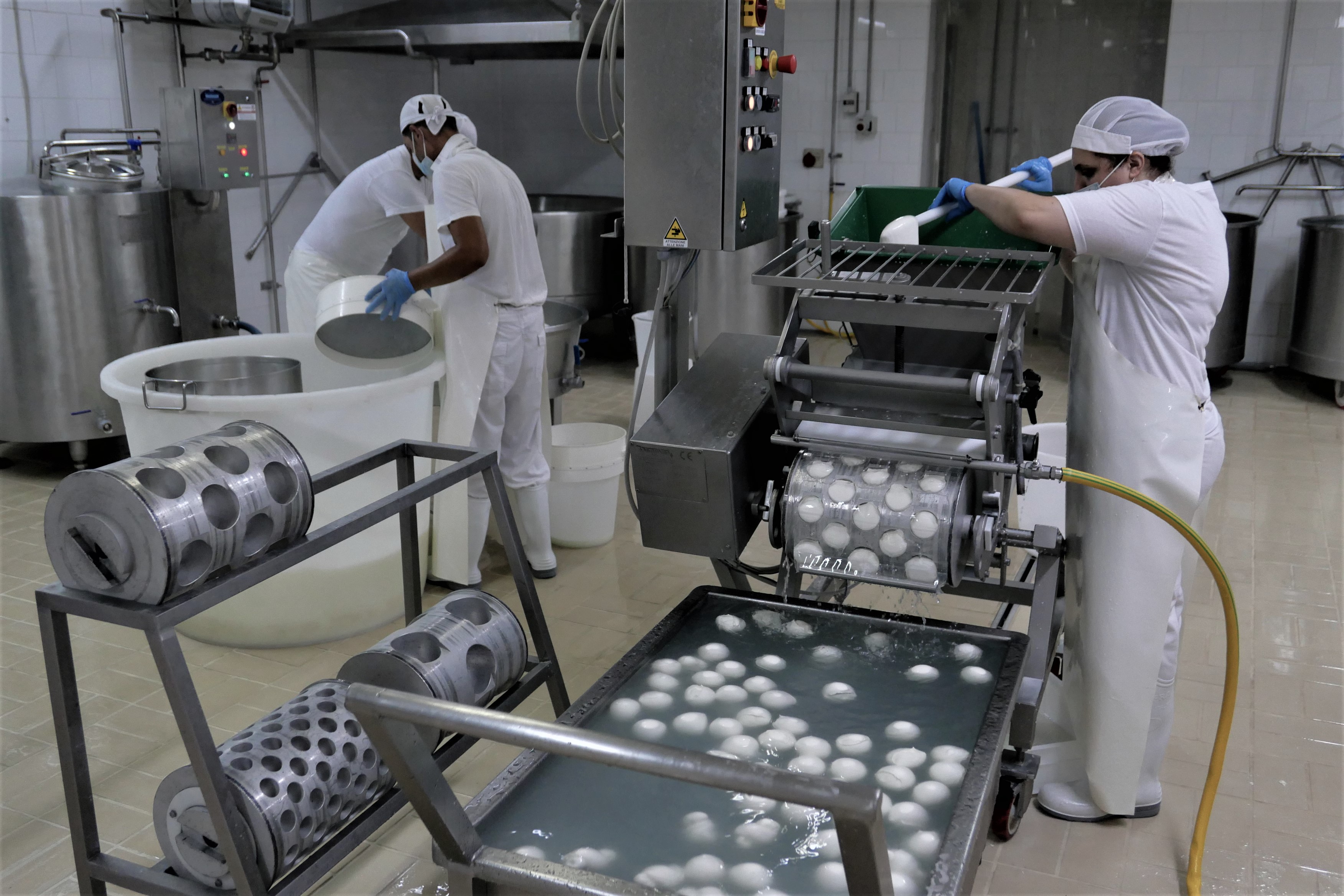
However, the daily management and the commitment of those cooperatives, employees, volunteers and activists involved in those projects can face hurdles and are limited by the lack of financial and human resources or red tep. After more than two decades of experiments, these actors are now shedding light on those issues which prevent them to improve their impact.
“Often authorities give the key of the asset and afterwards, ciao!”
First and foremost, there is a consensus that administrative procedures are way too long and can take more than ten years. _“Too much time is being wasted between the seizure, the final confiscation, to the final reuse [of the asset]. Assets deteriorate, they are left abandoned and are also depreciated. They lose value, because some steal everything they can from the confiscated assets”, explains Tina Cioffo, journalist and activist, as she takes the example of the confiscated house next to Casa Don Diana, in * Casal di Principe*.
“All the electric cables, the marble on the stairs were stolen… It would take a lot of money to make this house habitable” she laments.
Even if it doesn't always happen like this, there should be more shortcuts in the procedures. In any case, this is what Elena Fiorini, a lawyer, and former deputy mayor of Genoa between 2012 and 2017, suggests. “Over a five-year mandate, it takes 4 years to carry out the studies and the diagnoses. Then there are only a few months left for the implementation”, deplores this former elected official, responsible for the management of confiscated assets made available to the city.
Second, public funding is scarce. Often authorities give the key of the asset and afterwards, ciao!”, sums up Renato Natale, the mayor of Casal di Principe. When a subsidy is granted, it barely covers the funding for the renovation and most municipalities do not have the funds for further investments. Funds must therefore be sought elsewhere, either through private foundations, donation campaigns or bank loans.
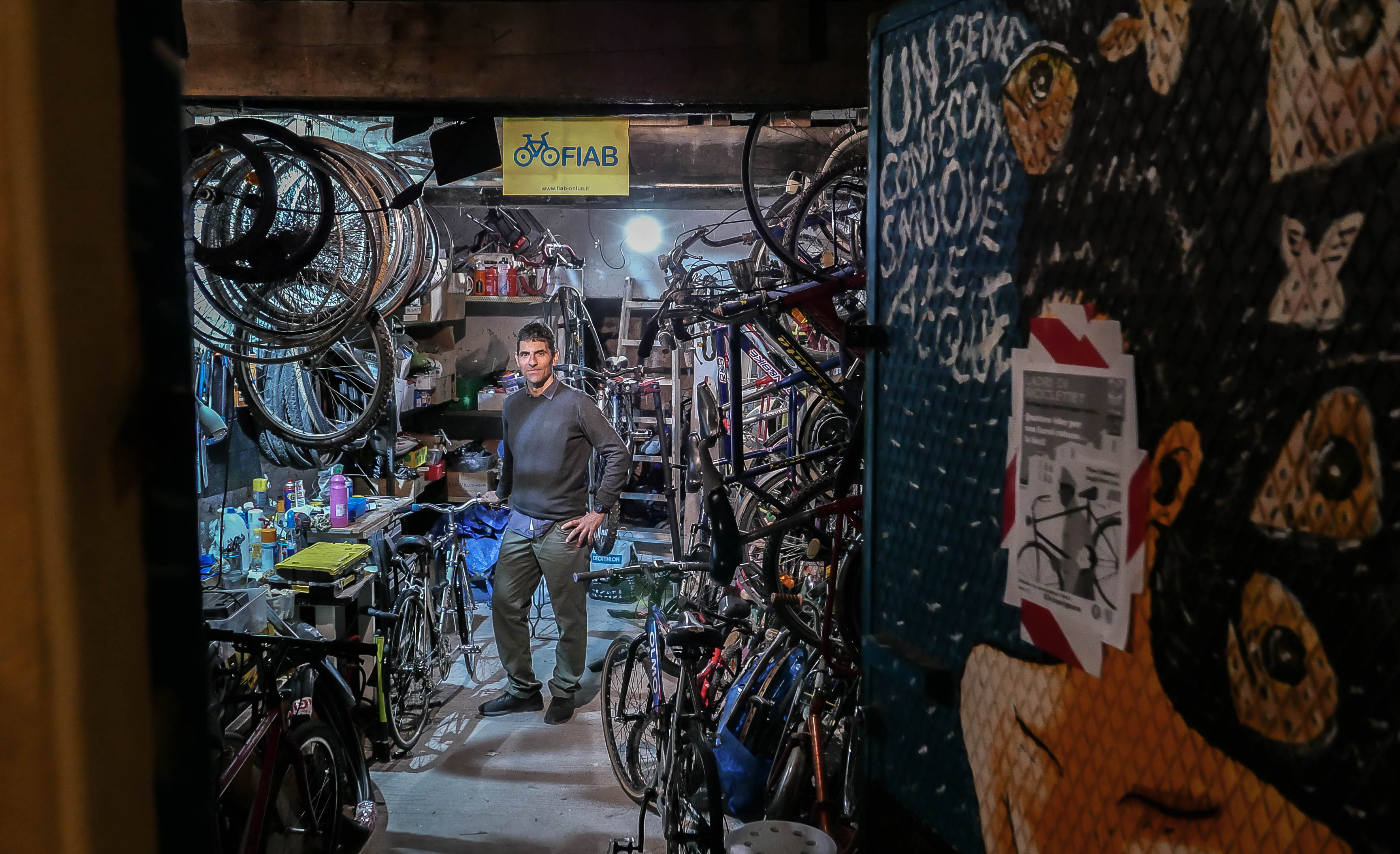
One proposal would be to be able to fund these projects using the "cash" confiscated from the mafia. These financial assets obtained fraudulently are kept by the State. But they remain without any particular attribution if they are not used in the victims compensation fund.
And, and it is a matter for the entire NGO sector everywhere, Human resources can also be an issue. USBC projects come to life only thanks to the voluntarism of local groups and activists. This means that many goods remain still and often unused, sometimes because of a lack of investment but also a lack of people.
For these organisations, the remuneration of human resources can be a real obstacle. They primarily work with a lot of volunteers and the salaries of the few employees are low. Which can sometimes constrain activities and new hires.
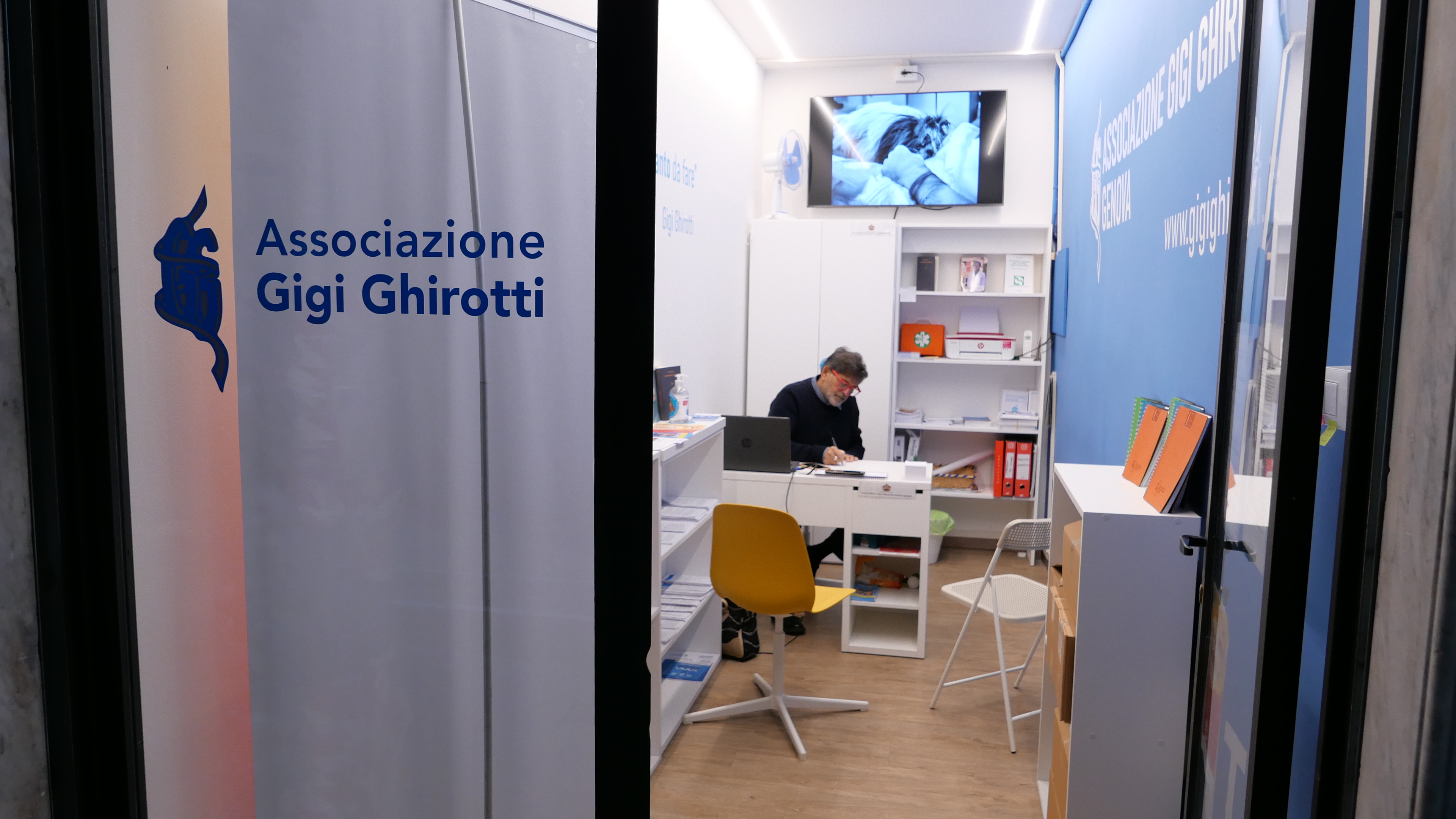
Another pitfall, as underlined by Maria-Laura di Biase, an employee of the Don Diana Committee in Casal di Principe is the lack of training. She takes care of the animation of the NGO-led cultural centre and coordinates projects with local USBC actors. She observes that, usually, project leaders train on their own, or are mentored by people who have been in their situation in the past. “But if there were university-type training for future managers, it would be more effective and it would fuel a reflection on a national scale, nourished by all the shared experiences”, she suggests.
This would also apply to public officials of local authorities overseeing such projects, who are given mandates without prior training. Elena Fiorini, a former municipal elected official in Genoa, who says that she largely lacked resources and advice to fulfil her duties.
On the other hand, the political choice to make people with atypical work profiles (people with disabilities, former prisoners etc) requires additional skills in training, support, job accommodation etc. And public support for those is not always optimal according to several volunteers and officials we interviewed.
Those pitfalls can therefore undermine the sustainability of those projects. Indeed, if the projects are carried by individuals or groups (for example, a municipal team), the withdrawal of these can risk the existence of the entire project. “What will happen after the departure of Renato Natale? », worries Tina Borzachiello, a mother whose autistic son is welcomed at the Forza del Silenzio, a structure based in a confiscated property in Casal di Principe.
In some cases, we observe a dependence on local political authorities, which are the only ones who can really decide — arbitrarily — whether a project can move forward or be stopped. “In a nearby town, the new mayor wanted to remove the house [made available] to parents of disabled children… we had to make a revolution [to keep it]! “, she remembers.
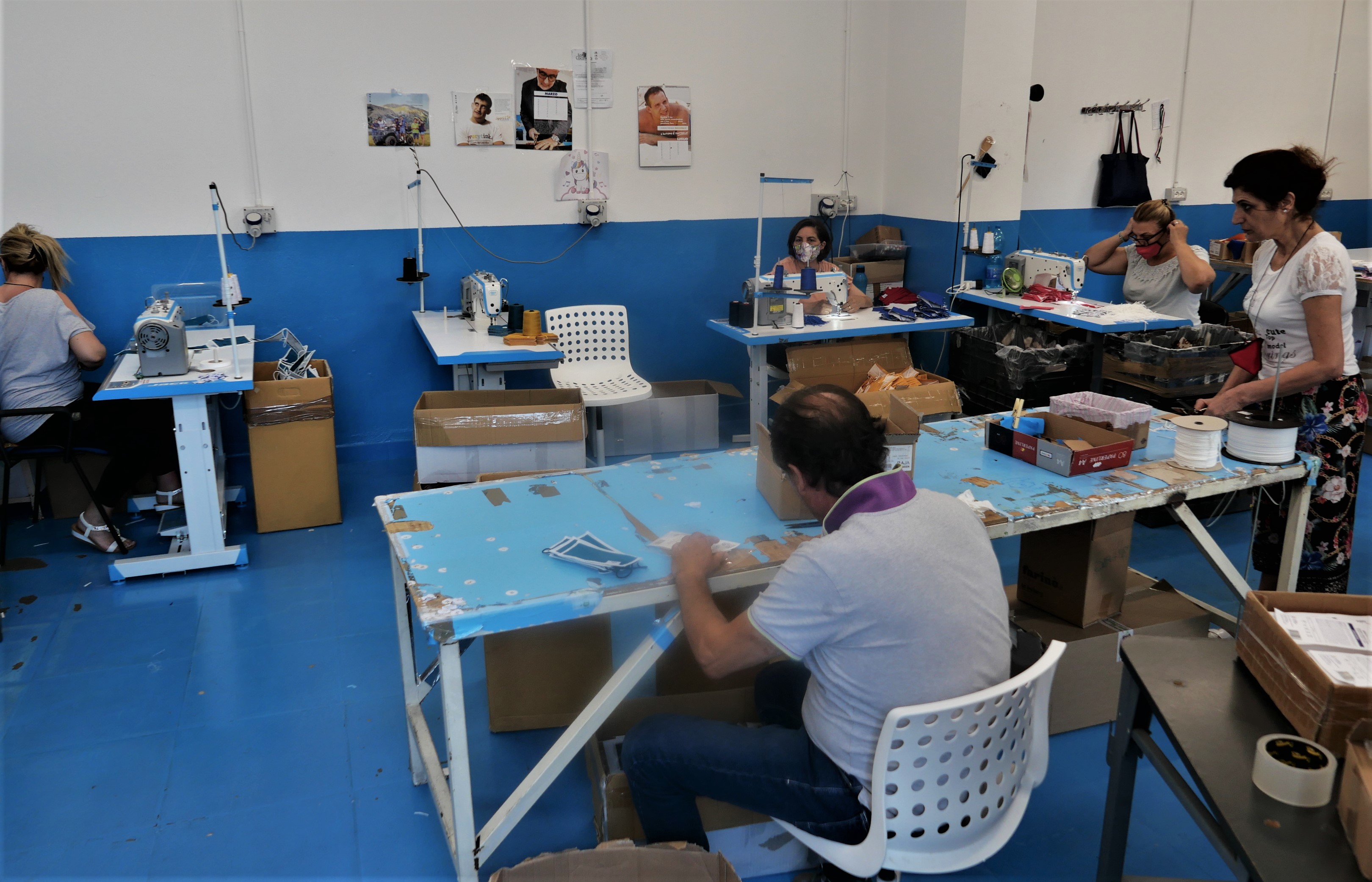
Continuous efforts
On another level, the success of USBC can only be achieved if the safety of the projects carriers is guaranteed. Because politicians and local entrepreneurs in some cities are still not emancipated from the mafia's grip. _"An asset must be 'freed' in a context which is itself 'freed', otherwise it doesn't work," recalls Mauro Baldascino, anti-Mafia expert and activist.
In addition, the State (i.e. police or judges) must be present at all times. Thus, in Genoa, property confiscated in the district of la Maddalena, in the historic centre has long continued to be the place of illegal activities, while the traffic chief continued to tour around his « properties”, even after his conviction.
“The police didn’t really want to do anything. If there is no social order around, the mafiosos are coming back “, abounds Andrea Picardo, a shop owner neighbouring one of these properties and committed to his district.
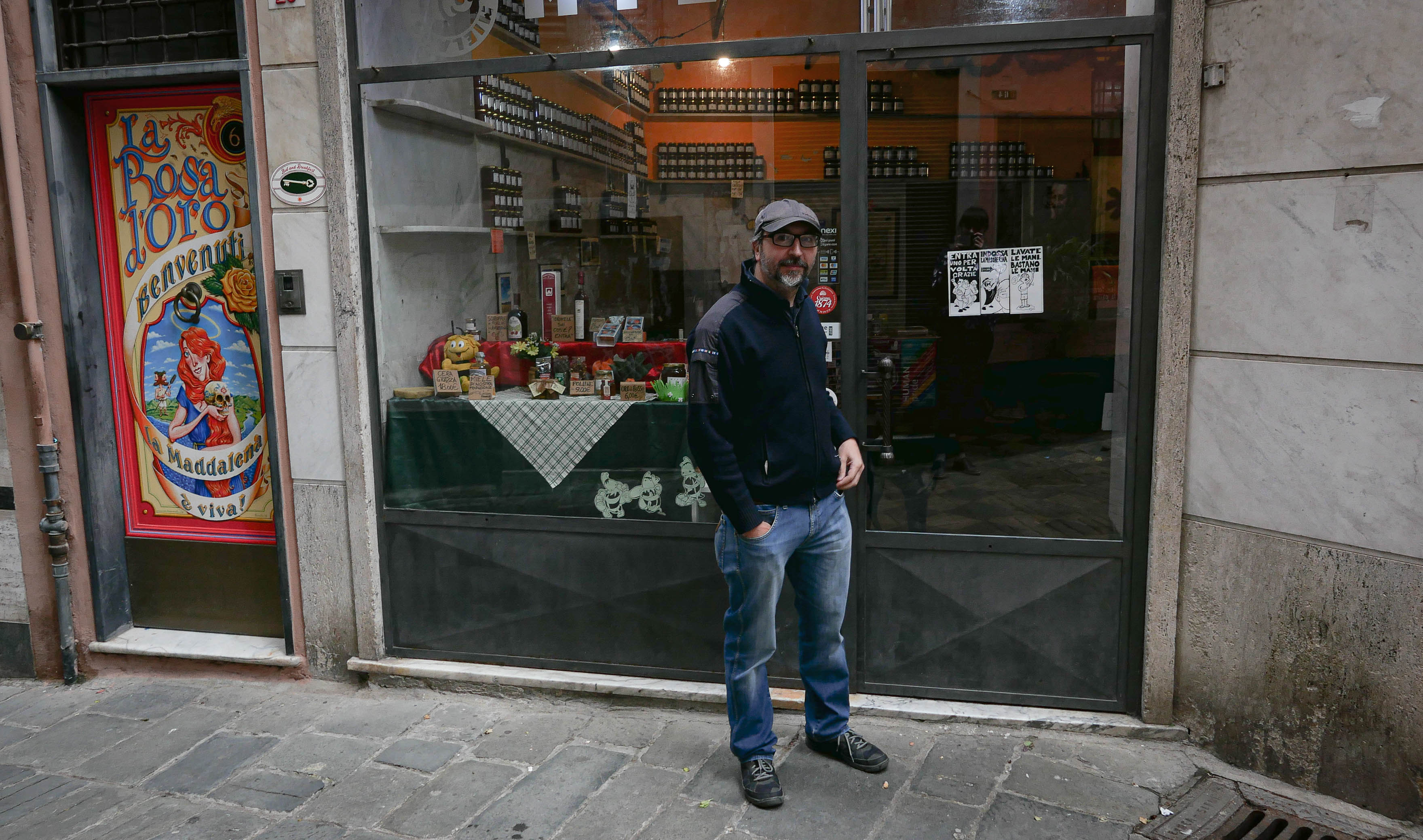
In Casal di Principe –- despite undeniable successes – anti-mafia activists are not forgetting that the mafia has not completely disappeared. In autumn 2021, the Don Diana Committee was targeted by lead bullets, while Massimo Rocco regularly suffered online (or not) intimidation, and some tools of his cooperative were being stolen. _“We are still afraid, but we manage the fear better because we are no longer alone”, says Tina Cioffo.
Better communication and increasing awareness of the projects born thanks to this law for the social use of confiscated assets is also a continuous effort from those defending the policy. This notably means extensive communication around products made in territories "liberated from the mafia", whether it be Massimo Rocco's mozzarella, canned goods from the Sessa Arunca cooperative which offers gift baskets (the operation _ “Pacco alla Camorra”_), or the masks made by autistic people from Forza del Silencio…
Because, even 25 years after the law passed, there is still a large chunk of the Italian population (or even sometimes authorities) who are clueless or know very little about this policy.
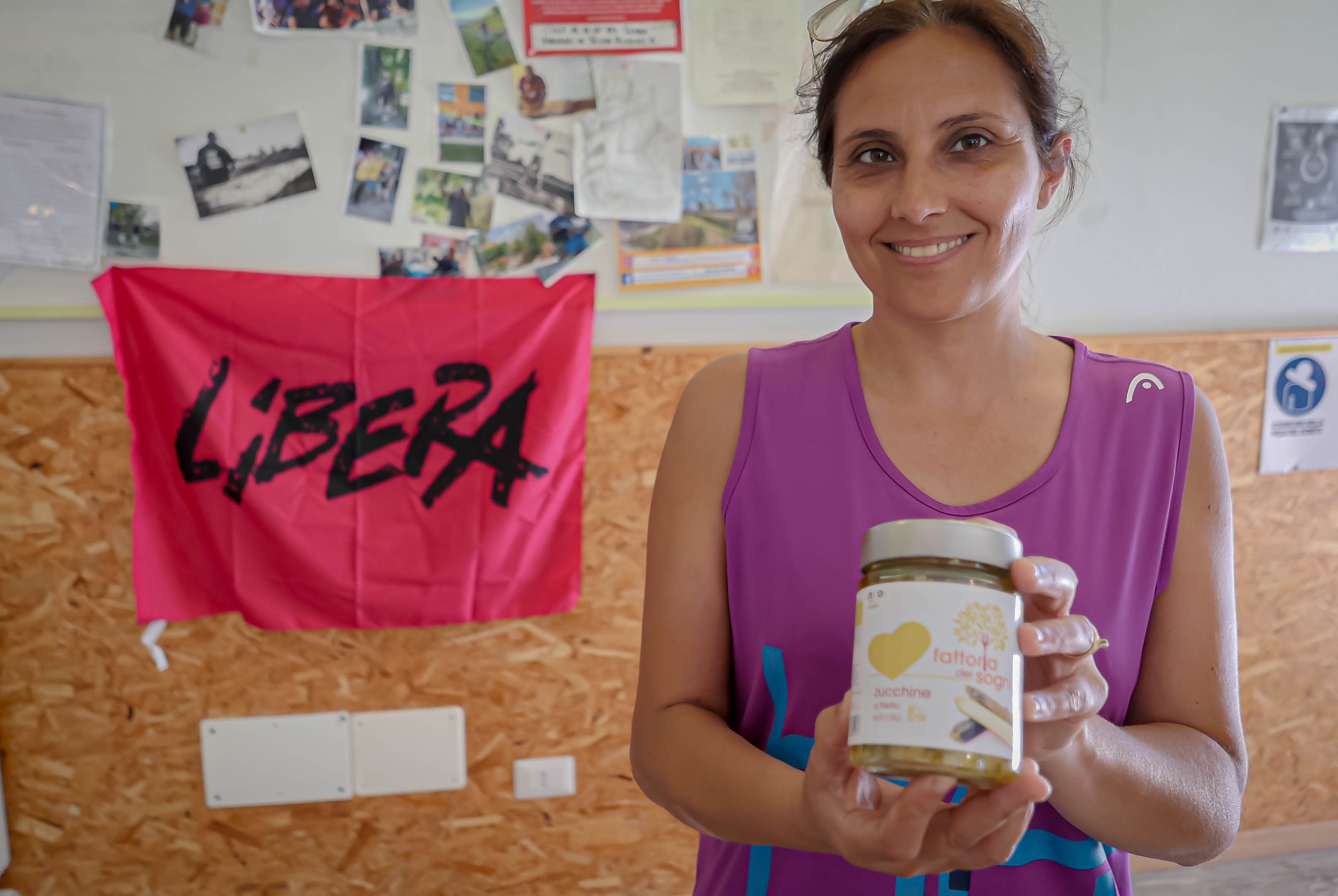
“The media should talk about it a little more. You never really hear on television about the use of confiscated assets. While you have a lot of news items about the mafia, because there is an audience…”, underlines Gaetano Paesano, an employee of the agricultural cooperative.
“Me, every time I have to explain to people what we are doing here in this confiscated asset, I realise that people often think that it is only the job of the police. So I tell them that we do things they didn't think of and with real people”.
##This article is the last of our three-part series, "New Landlords: when Italian civil society moves in with the mafia".
This project has been carried out in collaboration with researcher Fabrice Rizzoli within the framework of the research project COESO(Collaborative Engagement on Societal Issues) , a point of convergence between human and social sciences and participative research. COESO is coordinated by the Ecole des Hautes Etudes en Sciences Sociales and financed by the European research programme Horizon 2020.
To find out more information on what goes on behind the scenes, visit: https://usbc.hypotheses.org/
Cover photo: Massimo Rocco ©Mathilde Dorcadie
Translated from « Quand on gère un bien confisqué, il faut faire ses preuves. C’est une question de crédibilité face à ce qu’on combat » (3/3)



